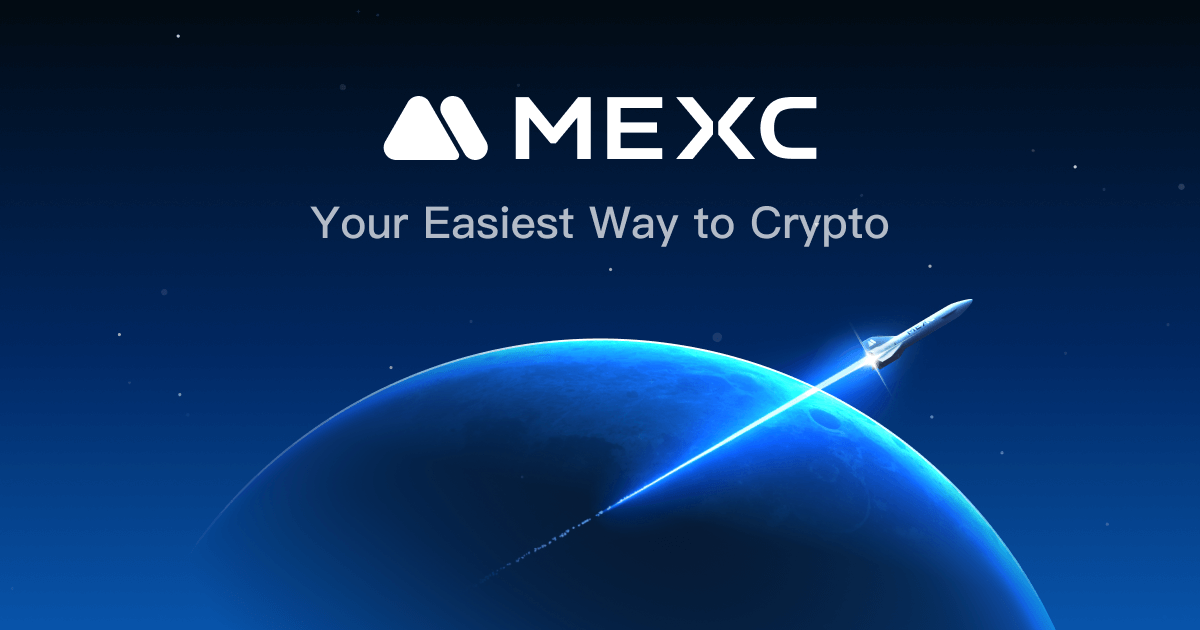
6 minute read
MEXC vs XT.com Comparison: Which is better?
from MEXC
by Exness_India
When comparing MEXC vs XT.com, traders often want to know which exchange offers better value in terms of trading features, fees, security, liquidity, and overall user experience. The short answer is: MEXC is generally the better choice for most traders, especially those focused on high liquidity, a wide selection of trading pairs, and advanced futures markets.
XT.com, however, still appeals to certain users due to its simple interface and focus on community-based token listings.
Let’s break this down in detail.

✅ Trade with MEXC now: Open An Account 👈
1. Overview of MEXC
MEXC is a global cryptocurrency exchange founded in 2018, known for its wide range of listed assets, deep liquidity in futures markets, and aggressive fee discounts. It has become popular among active traders because it often lists new tokens earlier than major competitors and supports high-leverage trading (up to 200x in some futures pairs).
One of MEXC’s strengths is its zero-maker-fee policy on spot trading and competitive taker fees, which makes it attractive for high-frequency trading. It also offers robust futures trading, staking, ETF products, and an API-friendly environment for algorithmic traders.
MEXC has also invested heavily in building strong liquidity partnerships, which means orders tend to execute quickly with minimal slippage — a critical advantage for scalpers and large-volume traders.
2. Overview of XT.com
XT.com, launched in 2018, positions itself as the world’s first social-infused digital asset trading platform, integrating social networking into cryptocurrency trading. While it offers spot, futures, and various financial products, its unique value proposition is its community engagement approach.
XT.com lists a large number of tokens, especially emerging and community-driven projects that may not yet be available on larger exchanges. This makes it attractive for traders hunting for the next big microcap token before it gains mainstream exposure.
However, while XT.com offers futures trading, its liquidity in derivatives is generally lower than MEXC’s, meaning larger orders can suffer higher slippage. For traders focused on speculative altcoins and community interaction, XT.com can be appealing, but it may lack the same level of depth in professional-grade trading tools.
3. Trading Experience: Speed, Tools, and UI
MEXC
MEXC’s platform is optimized for speed, with a modern interface suitable for both beginners and professionals. It supports advanced order types like stop-limit, stop-market, trailing stop, and take-profit orders. Its futures platform offers detailed charts powered by TradingView, integrated depth charts, and easy access to leverage adjustments.
For traders using bots, MEXC provides reliable API connections and low-latency order execution. Mobile trading is smooth and mirrors the web interface closely, making it easy for traders on the go.
XT.com
XT.com’s trading interface is clean but simpler compared to MEXC. While it includes standard order types and TradingView chart integration, some advanced tools are limited. For example, complex conditional orders and rapid leverage switching are less seamless than on MEXC.
Where XT.com shines is in its social features — traders can follow communities, engage in discussions, and discover trending tokens through community signals. However, for professional futures traders, this social element does not necessarily compensate for lower liquidity.
4. Spot Trading: Variety and Liquidity
MEXC offers over 1,600 trading pairs, covering major cryptocurrencies, stablecoins, and a vast array of altcoins. It is well known for quickly listing trending tokens, which makes it a go-to exchange for traders who want early access to new coins. The spot liquidity is strong, especially for popular pairs like BTC/USDT and ETH/USDT, meaning tighter spreads and faster order execution.
XT.com also lists a wide range of tokens, with some overlap but also some unique community-driven coins that MEXC does not carry. However, while XT.com offers many exotic pairs, liquidity can vary greatly. Some low-volume tokens can have wide bid-ask spreads, making it harder for traders to enter and exit positions efficiently.

✅ Trade with MEXC now: Open An Account 👈
5. Futures Trading: Leverage and Depth
If you’re a derivatives trader, MEXC clearly has the upper hand. It offers:
Up to 200x leverage on certain pairs
Deep liquidity for major contracts
A strong variety of perpetual swaps and quarterly futures
0% maker fees and low taker fees in futures markets
XT.com also offers futures trading, but the available leverage is lower (often up to 50x–100x on major pairs), and the range of contracts is narrower. Liquidity can be thinner, which may not be ideal for scalpers or traders handling large orders.
6. Fees and Costs
One of MEXC’s standout advantages is its 0% maker fee on spot trading, combined with competitive futures fees (maker 0%, taker 0.02%). It also runs regular fee rebate campaigns and VIP programs for high-volume traders.
XT.com’s fees are competitive but not as aggressive as MEXC’s in terms of discounts. Typical spot trading fees are around 0.2%, with occasional promotions. Futures fees vary but are generally slightly higher than MEXC’s base rates.
7. Security and Trustworthiness
Security is a top concern for traders, and both exchanges have measures in place, but MEXC’s reputation in this area is stronger.
MEXC Security Highlights:
Cold wallet storage for most assets
Regular security audits
2FA authentication, anti-phishing codes, and withdrawal whitelist features
Solid track record without major hacks
XT.com Security Highlights:
Similar protective measures (cold wallets, 2FA, withdrawal protections)
Integrated anti-DDoS systems
Has operated without a major publicized security breach
While both exchanges are relatively young compared to giants like Binance, MEXC’s consistent uptime and robust security reputation give it an edge in user trust.
8. User Support and Community
MEXC offers 24/7 live chat support in multiple languages and a knowledge base that is well-organized. Response times are generally fast, especially for account or withdrawal issues.
XT.com’s support is responsive but sometimes slower during peak trading periods. However, it has a strong community presence — traders can interact directly with token projects and other users within the platform’s social system.
9. Accessibility and Global Reach
MEXC serves over 170 countries and is available in multiple languages. It is popular in Asia, Europe, and emerging markets, and offers fiat on-ramp services in certain regions.
XT.com is also globally accessible but has a slightly smaller market presence. It’s more popular in niche communities, especially for altcoin hunters, but has less mainstream adoption compared to MEXC.
10. Which Should You Choose?
If you want a professional-grade trading experience with deep liquidity, advanced tools, aggressive fee discounts, and a broad futures market, MEXC is the better choice. It suits scalpers, day traders, and high-volume spot and derivatives traders.
If you prefer community-driven token discovery, don’t mind slightly lower liquidity, and want a social element integrated into your trading platform, XT.com can be appealing, particularly for speculative altcoin investing.
Final Verdict
While both exchanges have their strengths, MEXC wins for most serious traders due to its liquidity, zero-maker-fee structure, faster execution speeds, and more extensive futures offerings. XT.com remains a viable choice for those who prioritize community engagement and niche coin discovery over advanced trading infrastructure.
In the fast-paced world of cryptocurrency trading, liquidity and execution speed often make the difference between profit and loss. For that reason alone, MEXC stands out as the safer, more efficient option for active traders.
✅ Trade with MEXC now: Open An Account 👈
Read more:








